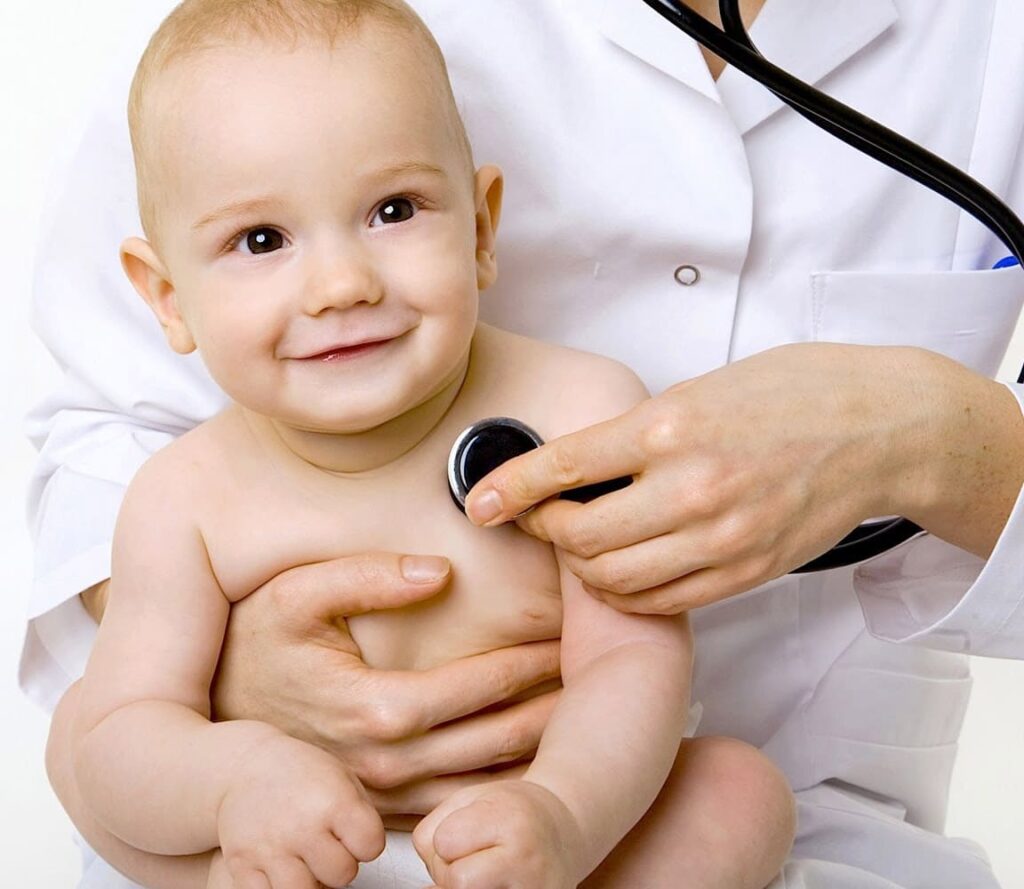Pediatrics
Pediatric Cardiology
Pediatric Cardiology Pediatric cardiology is a branch of science that deals with the diagnosis and treatment of heart diseases of people starting from the heart of the baby in the womb up to 18 years old. With the differentiation and development of the cells, the development of the heart, which takes its special shape, is completed within two months after fertilization. The heart, which is tubular before this period, becomes an organ with 4 valves and 4 cavities within 60 days and continues to function throughout human life.
Pediatric Cardiology
In some cases, there are disorders, in other words anomalies, depending on the development of the baby’s heart in the womb. This situation accounts for approximately 10% to 30% of all diseases seen at birth. Approximately 9 out of every 1,000 babies born alive have congenital heart disease. Although some of these anomalies are not clinically important and show spontaneous recovery, some of them can only be treated surgically. Although it has been suggested that heart diseases, for which early diagnosis is very important, are caused by genetic and environmental factors, the causes of most of them are not yet fully known.

What are congenital heart conditions? Although the majority of congenital heart diseases, in other words, heart diseases by birth, are seen within one year after birth, some of them can be detected by fetal echocardiography performed during the control of the baby in the womb. Heart diseases are usually noticed by the pediatrician during the routine examination up to the age of 1, and the diagnosis becomes clear when the physician directs the family to the pediatric cardiologist. This is mostly because the findings are not at a level that will disturb the family. However, in some cases, congenital heart conditions may show the following symptoms:
However, in some cases, congenital heart conditions may show the following symptoms:
- Bruising
- Breathing frequently
- Distressed breathing
- Common respiratory infection
- Hearing a murmur in the heart
- Palpitations
- Quick fatigue
- Dizziness
- Fainting
- Chest pain
- Hypertension
- Inability to gain weight
- Growth disorder


Although some problems caused by the small holes between the atria and ventricles, which are noticed by the pediatric cardiologist, heal spontaneously, the patient should be followed up by the pediatric cardiologist. What causes congenital heart diseases?
Genetic Factors: Approximately 9% of heart diseases in newborn babies are due to chromosomal disorders. For example, 40% of patients with Down syndrome have congenital heart anomalies. This damage, which can be defined as microdeletion and roughly as breaks and ruptures in chromosomes, is held responsible for heart diseases.
Metabolic Diseases: Metabolic diseases such as diabetes in expectant mothers cause 1% to 2% of all heart diseases seen in newborns. The risk of having heart disease in babies of mothers with diabetes is between 2% and 6%.
Teratogenic Factors: Exposure of the expectant mother to smoking, alcohol, drugs, X-rays and chemicals and using some drugs during pregnancy may cause congenital heart diseases.
What is murmur?
What is murmur? Murmur is a sickness that the physician notices while listening to the heart with a stethoscope, which is caused by sounds that resemble blowing and exist between the usual sounds of the heart. It has two types, namely innocent and pathological murmurs. The sound heard in the innocent murmur is mild. This is because the chest wall in children is thinner than in adults. As the child grows, this wall thickens and the murmur sound disappears.
Pathological murmur is caused by structural defects such as holes in the heart, vascular openings, and stenosis in the heart vessels. The type of murmur in the heart can be easily noticed by the specialist physician. Echocardiography, known as ECHO, can be used to clarify uncertain situations.
What is infective endocarditis? The disease, which is defined as the involvement and inflammation of the heart valves, vessels or inner membranes, is very rare in children without heart disease. It is an infection that develops with fever, murmur and shortness of breath that develops due to the mixing and proliferation of bacteria, fungi and other microorganisms in the mouth of normal people that do not affect them. This is why oral hygiene is particularly important for children with heart disease.



